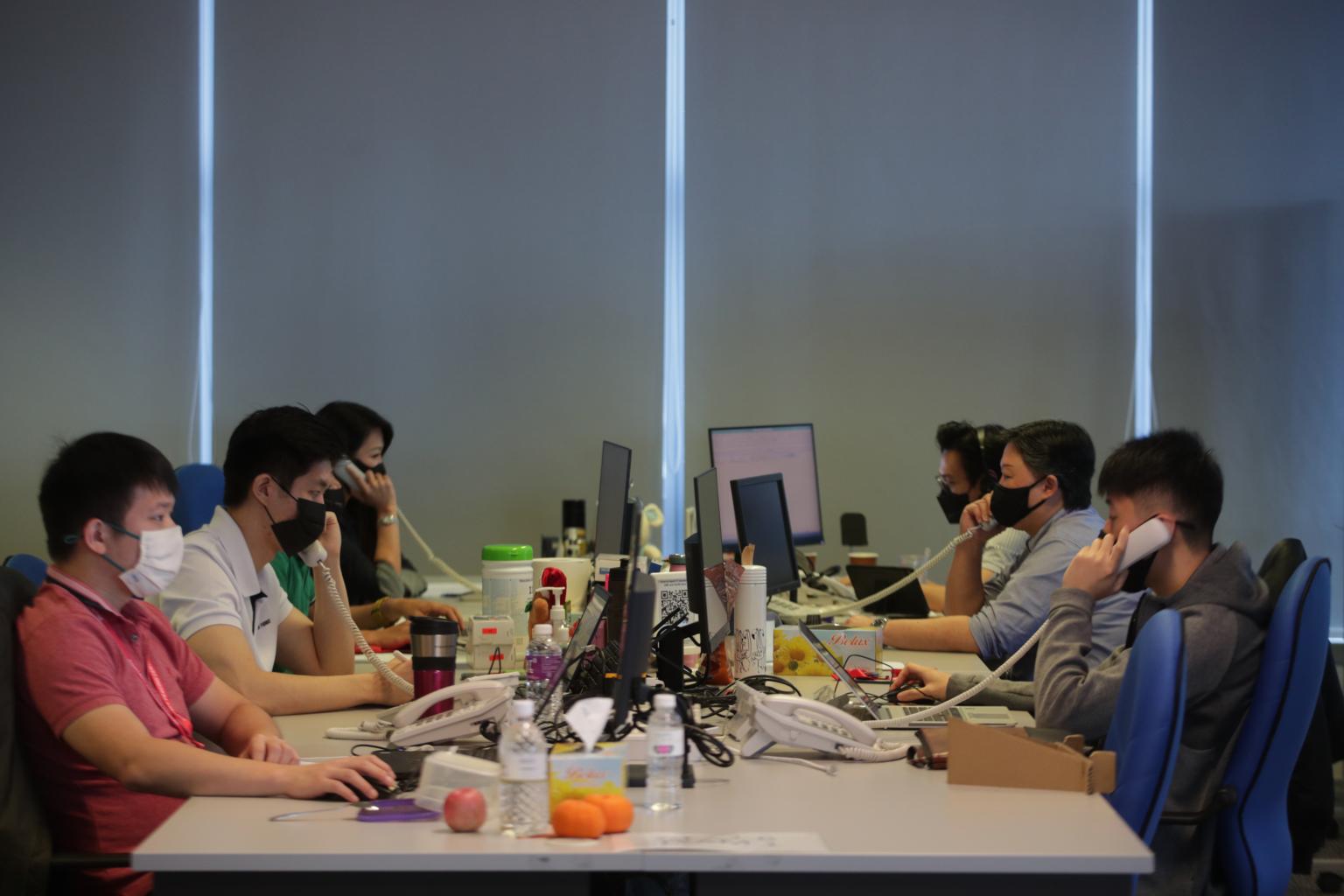Number of contact tracers up by nearly 50% since mid-July, with sharp rise in Covid-19 cases
Sign up now: Get ST's newsletters delivered to your inbox

MOH said the number of contact tracers had been ramped up over the past month.
ST PHOTO: TIMOTHY DAVID
Timothy Goh
Follow topic:
SINGAPORE - The number of people working as contact tracers, to find those with possible exposure to Covid-19, has been increased by nearly half since mid-July, the Ministry of Health (MOH) told The Straits Times on Thursday (Aug 12).
The number of contact tracers has gone up from about 330 to about 480 now, along with the recent increase in cases.
Singapore saw a sudden surge of coronavirus infections after a cluster surrounding KTV lounges was announced on July 12, with the daily number of community cases, zero just two days earlier, soon hitting double, and then triple, digits.
Health Minister Ong Ye Kung said on Aug 2 that for a "small number" of cases, it had taken 14 days, from the point of notification of a confirmed case, to issue a quarantine order to close contacts.
This was due to the difficulty in tracing the contacts of the infected people in these cases, he said.
The number of cases remained high throughout late July and early August, with another major cluster linked to the Jurong Fishery Port emerging.
On Thursday, MOH said the number of contact tracers had been ramped up over the past month, given the increased need for their work, to enable potential cases to be detected and ring-fenced rapidly.
The contact tracing team consists of officers from various ministries and volunteers from MOH statutory boards and the public service, and is further supplemented with manpower from external service providers.
ST reported in June that the Singapore Armed Forces and police were helping to boost the supply of contact tracers.
MOH also said on Thursday that about 100 beds in intensive care units (ICU) across Singapore have been set aside for Covid-19 patients.
"We are able to expand our ICU capacity if needed to cater for any increase in Covid-19 cases who require critical care," said the ministry.
It added that it has been working with public hospitals to progressively expand their capacity to care for Covid-19 patients.
Measures taken include retrofitting general wards for easier conversion into isolation and intensive care rooms if needed.
The ministry said it has also ensured sufficient supply of medical equipment such as ventilators and medication.
Neither MOH nor any of the three public healthcare clusters gave details on how many general wards have been converted into wards for Covid-19 patients.
However, Professor Leo Yee Sin, executive director of the National Centre for Infectious Diseases (NCID), said the centre and Tan Tock Seng Hospital - both of which have been at the centre of the pandemic - now have thrice the number of isolation beds they had before Covid-19 broke out here early last year.
NCID and other public healthcare institutions here are also rescheduling some non-urgent consultations or reducing non-urgent surgical work to dedicate more resources to fighting the pandemic.
Prof Leo added that NCID is caring for about one-third of all hospitalised Covid-19 patients here, with patients in recovery and those with milder conditions being admitted to community care facilities (CCFs).
These CCFs currently have the capacity to accommodate more than 5,000 people, and more capacity can be added if needed, said MOH.
The CCFs are mainly run by private managing agents and healthcare providers, and supported by public healthcare manpower.
MOH added that the SG Healthcare Corps has also been deployed to support CCFs and other operations.
The corps is a medical reserve force set up in April last year to marshal volunteers in the fight against Covid-19. It consists mainly of medical staff from the private sector, retired medical professionals, and those who are medically trained but no longer practising.
Asked what could be done to ensure Covid-19 cases do not overwhelm the healthcare sector, Prof Leo said: "Response to the outbreak does not rest with NCID or the healthcare sector alone. The community plays a big part in preventing the spread of the disease, such as keeping to safe management measures, taking up Covid-19 vaccination, and supporting one another to strengthen mental resilience and social stability."

